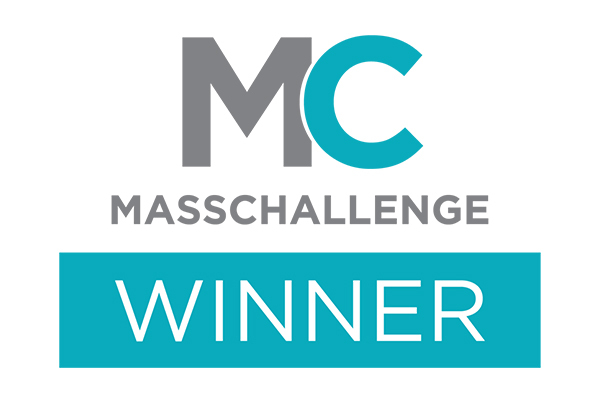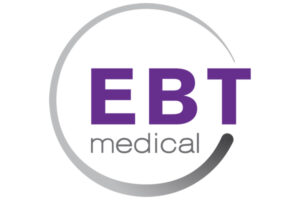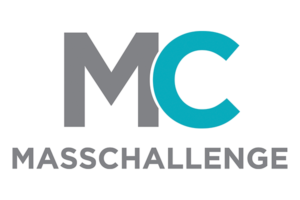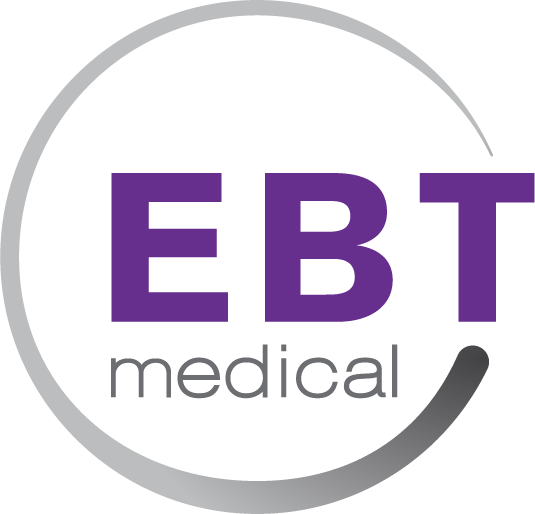Company granted significant non-dilutive funding in recognition of the disruptive potential of its noninvasive neuromodulation technology for overactive bladder
Boston, Massachusetts – October 17, 2018 – EBT Medical, Inc. (“EBT”), a startup developing disruptive neuromodulation therapies for pelvic health disorders, was named one of 15 “highest impact” startups and awarded $100K by the MassChallenge Boston accelerator program at their Ninth Annual Awards Banquet held at the Boston Convention Center. In May, EBT was selected from over 1,600 applicants from around the world to participate in the 2018 cohort, which connects promising startups to a network of support and resources – all at zero cost and zero equity.
“EBT is extremely pleased to be named one of the most-promising startups by MassChallenge and to be awarded funding,” said Paul Yoo, PhD, Associate Professor at the Institute for Biomaterials & Biomedical Engineering at the University of Toronto and Co-founder, President, and Chief Scientific Officer of EBT Medical. “To be selected out of over 120 finalists is clear recognition of the disruptive potential for our noninvasive therapy for overactive bladder.”
Over the course of the four-month program, the Boston cohort has leveraged expert mentorship, tailored programming, corporate engagement, and industry resources to launch and grow their companies. Out of 1,600 entrants, 128 were selected as finalists. Of those finalists, only one in ten were awarded funding, with EBT one of only four companies receiving the largest grant amount. EBT plans to use the non- dilutive funding to continue generating and evaluating clinical data validating the safety and efficacy of its revolutionary therapy.
EBT was especially recognized for its noninvasive approach to treating overactive bladder (OAB), which affects nearly 550M worldwide. Drugs for OAB have dangerous side effects and Botox® involves invasive bladder injections. Existing neuromodulation devices are also highly invasive, involving spinal implants and needles. EBT’s revolutionary approach centers on a new stimulation target—the Saphenous nerve—which can be stimulated noninvasively. Because the Saphenous nerve is a superficial, purely sensory nerve, it can be easily stimulated through the skin and at higher amplitudes than other nerves. Preliminary data suggests similar efficacy to drugs and invasive therapies with reduced risk and side effects. Noninvasive Saphenous Neuromodulation (nSAFN) has the potential to displace implanted, injected, percutaneous and pharmacologic therapies, making it a true first-line, at-home therapy.
About EBT Medical
EBT Medical was founded in 2014 based on scientific discoveries made at the University of Toronto with a mission to develop novel neuromodulation technologies that restore control, dignity and independence to those silently suffering from pelvic floor disorders. EBT’s first product is a clinical-grade, noninvasive neurostimulator and associated ecosystem for overactive bladder (OAB). EBT has a significant patent estate around multiple neuromodulation technologies including issued patents on the Saphenous nerve for all pelvic health indications. EBT’s management team and world-class advisory board have decades of relevant experience in pelvic health, neuromodulation, and consumer health. Learn more about EBT Medical at www.ebtmedical.com
About MassChallenge
MassChallenge is a global network of zero-equity startup accelerators. Headquartered in the United States with locations in Boston, Israel, Mexico, Rhode Island, Switzerland, and Texas, MassChallenge is committed to strengthening the global innovation ecosystem by supporting high-potential early stage startups across all industries, from anywhere in the world. To date, more than 1,500 MassChallenge alumni have raised more than $3 billion in funding, generated over $2 billion in revenue, and created over 80,000 total jobs. Learn more about MassChallenge at masschallenge.org
About Overactive Bladder and Neuromodulation
Overactive bladder is a disabling syndrome affecting nearly 550M worldwide1. It is characterized by frequent, sudden, uncontrollable urges to void, often followed by incontinence episodes that are embarrassing and significantly impede activities of daily living. The major symptom of OAB, Urge Urinary Incontinence (UUI), is thought to be caused by over-signaling to & from the bladder and the pontine micturition center located in the brain stem. Over 50%2 of those with OAB remain undiagnosed and silently suffer, with marked increases in depression, anxiety, sleeplessness due to nocturia (waking to void), and social isolation. The economic impact of OAB in the United States was estimated at $76B including direct costs and indirect costs such as increased urinary tract infections, falls from running to the bathroom, and absenteeism3. Neuromodulation has been an established therapy for UUI since it was first approved in 1997.
Contact
Keith R Carlton
Chief Executive Officer
[email protected]
Disclaimer
Certain information set forth in this press release contains “forward-looking information”, including “future oriented financial information” and “financial outlook”, under applicable securities laws (collectively referred to herein as forward-looking statements). Except for statements of historical fact, information contained herein constitutes forward-looking statements. Forward-looking statements are provided to allow potential investors the opportunity to understand management’s beliefs and opinions in respect of the future so that they may use such beliefs and opinions as one factor in evaluating an investment.
These statements are not guarantees of future performance and undue reliance should not be placed on them. Such forward-looking statements necessarily involve known and unknown risks and uncertainties, which may cause actual performance and financial results in future periods to differ materially from any projections of future performance or result expressed or implied by such forward-looking statements.
Although forward-looking statements contained in this presentation are based upon what management of EBT Medical believes are reasonable assumptions, there can be no assurance that forward-looking statements will prove to be accurate, as actual results and future events could differ materially from those anticipated in such statements. EBT Medical undertakes no obligation to update forward-looking statements if circumstances or management’s estimates or opinions should change except as required by applicable securities laws. The reader is cautioned not to place undue reliance on forward-looking statements.
1 546M affected individuals in 2018. Filipetto et al.: The patient perspective on overactive bladder: a mixed-methods needs assessment. BMC Family Practice 2014 15:96.
2 Ibid.
3$76B in 2015. J Manag Care Pharm. 2014 Feb;20(2):130-40. “Economic burden of urgency urinary incontinence in the United States: a systematic review.”








